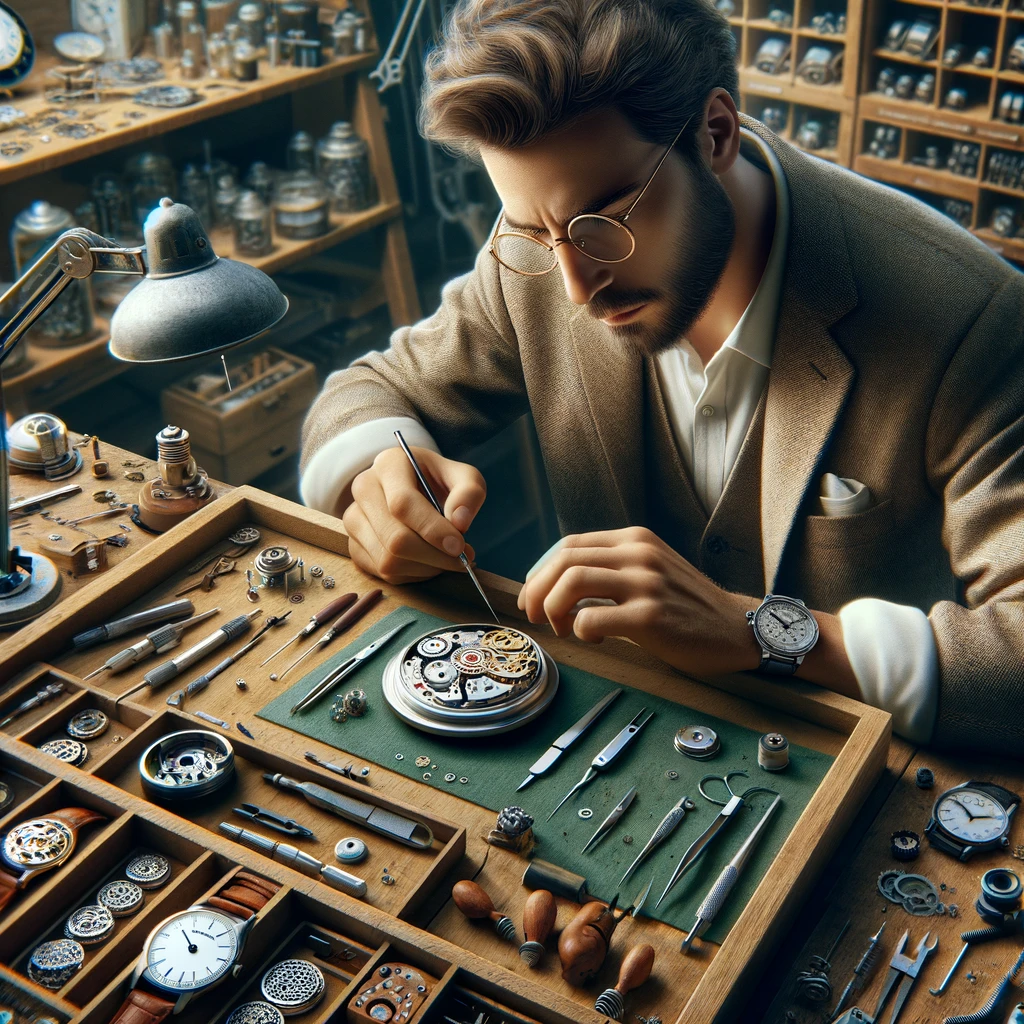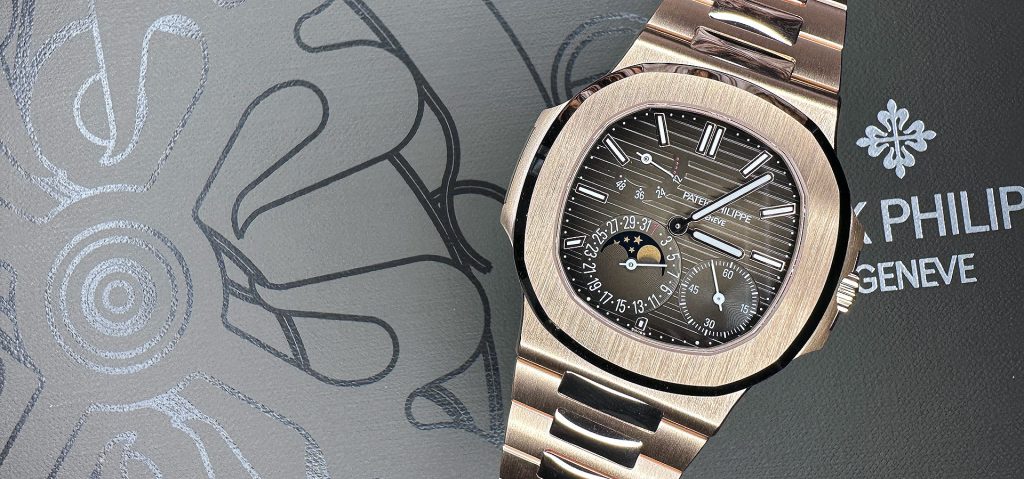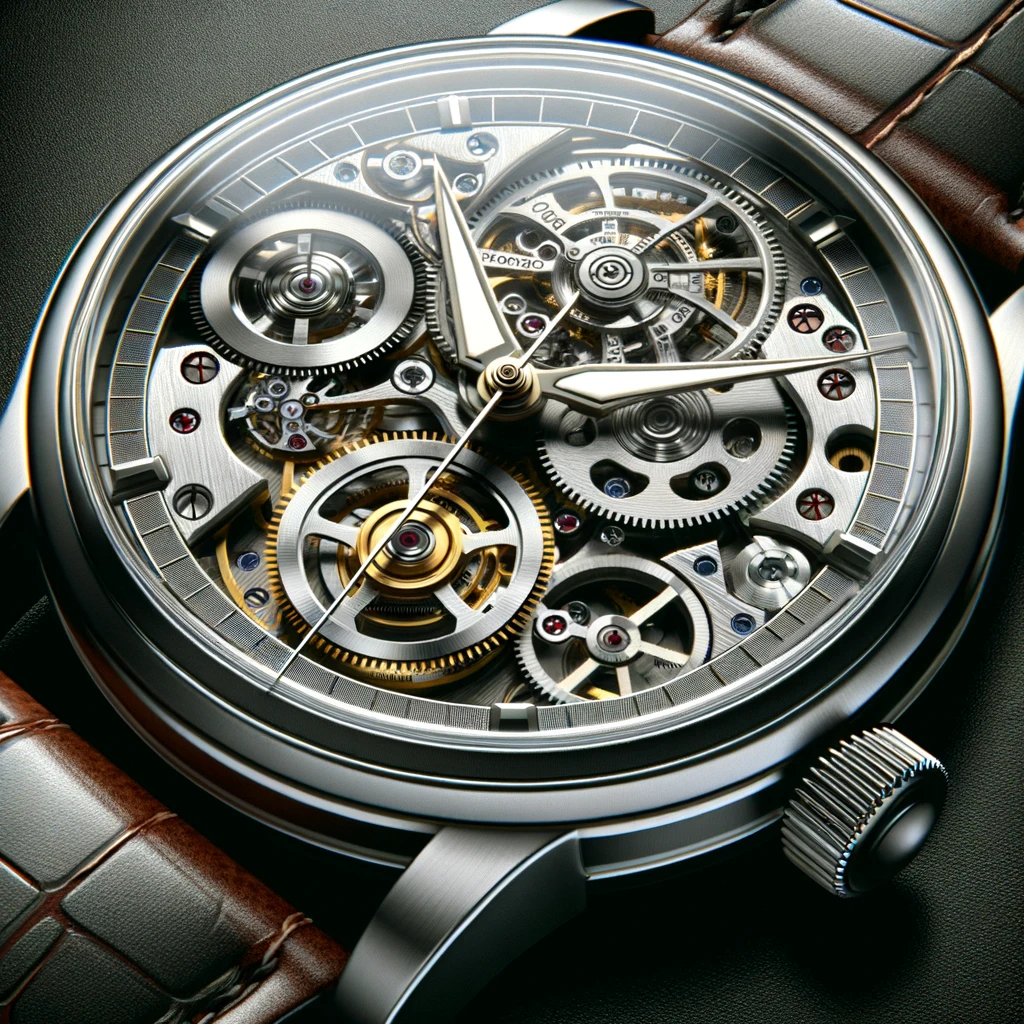Blog
How Automatic Watches Work: The Art of Time in Motion
Table of Contents
Introduction to Automatic Watches
Automatic watches, a marvel of engineering and craftsmanship, stand as a testament to human ingenuity. They emerged from the evolution of manual timepieces, offering a fascinating blend of tradition and technology. Their appeal lies not just in their functionality but in the artistry they embody, making them a coveted accessory in the modern era.
Understanding the Mechanics of Automatic Watches
The heart of an automatic watch lies in its complex inner workings. Key components include the mainspring, gears, and a rotor – a semicircular piece that moves with the wearer’s wrist. As you move, the rotor spins, transferring energy to the mainspring and keeping the watch wound. This delicate interplay of parts ensures the watch functions seamlessly.
The Magic of Movement: How Kinetic Energy Powers the Watch
The principle of kinetic energy is central to automatic watches. As the wearer moves, the motion is harnessed, converting it into the energy that powers the watch. This self-winding mechanism is not just a technical wonder but a symbol of how motion and time are intrinsically linked.
Comparing Automatic and Quartz Watches
Automatic and quartz watches differ fundamentally in their mechanisms. Quartz watches use a battery and electronic oscillator for timekeeping, while automatic watches rely on mechanical movement and human motion. Each has its advantages in terms of precision, maintenance, and aesthetic value.
Innovations in Automatic Watch Technology
Automatic watch technology has seen significant advancements. Digitalization has introduced new features, enhancing functionality without compromising the traditional appeal. These innovations point towards a future where tradition and technology coexist in harmony.
The Art of Watchmaking: Skills and Precision Required
Crafting an automatic watch is an art requiring immense skill and precision. Watchmakers spend years mastering their craft, ensuring each watch is a masterpiece of mechanical precision and aesthetic beauty. This dedication to craftsmanship is what sets luxury watches apart.

Choosing the Right Automatic Watch
Selecting an automatic watch involves considering various factors such as design, brand, and price. From sleek, modern designs to classic styles, there’s an automatic watch to suit every taste and budget.
Maintenance and Care for Automatic Watches
To ensure longevity, automatic watches require regular maintenance. Simple practices like keeping the watch clean, avoiding extreme temperatures, and regular servicing can significantly extend its life.
The Influence of Automatic Watches in Fashion and Culture
Automatic watches have become more than timekeeping devices; they’re fashion statements and symbols of status. They’ve made their mark in films, on red carpets, and in the annals of cultural history, reflecting personal style and sophistication.
Environmental Impact and Sustainability in Watchmaking
The watchmaking industry is increasingly focusing on sustainability. Eco-friendly manufacturing practices and sustainable materials are becoming the norm, reflecting a commitment to environmental responsibility.
Notable Brands and Models in Automatic Watchmaking
Brands like Rolex, Omega, and Patek Philippe have set the standard in automatic watchmaking. Each brand has its iconic models, known for their design, reliability, and history.
The Science Behind Automatic Watch Accuracy
Precision in automatic watches is influenced by various factors, from the quality of materials to the design of the movement. Innovations continue to improve their accuracy, ensuring they keep time flawlessly.
Customization and Personalization in Automatic Watches
For enthusiasts, customizing an automatic watch adds a personal touch. From bespoke dials to unique straps, the options for personalization cater to individual tastes and preferences.
The Emotional Value of Automatic Watches
Beyond their material value, automatic watches often hold significant emotional value. They’re not just timepieces but heirlooms, carrying stories and memories across generations.
Navigating the World of Counterfeits and Replicas
In a market flooded with replicas, distinguishing genuine automatic watches from counterfeits is crucial. Understanding the hallmarks of Replica ity is essential for collectors and enthusiasts alike.
Understanding the Resale Market for Automatic Watches
The resale market for automatic watches is vibrant, influenced by factors like brand legacy, condition, and rarity. Knowing where and how to buy or sellReplica Watches watches can be a rewarding aspect of watch collecting.
The Future of Automatic Watches
The future of automatic watches looks promising, balancing tradition with modern innovation. Despite technological advancements, the allure of a mechanically powered, beautifully crafted watch remains undiminished.
Conclusion: The Timeless Allure of Automatic Watches
Automatic watches represent a perfect harmony of art and mechanics. Their enduring appeal lies in their ability to capture the essence of time in a way that is both deeply personal and universally revered.
FAQ
How long can an automatic watch run without being worn?
An automatic watch typically has a power reserve of about 24 to 48 hours, meaning it will keep running for that duration without being worn.
Do automatic watches require more maintenance than quartz watches?
Yes, due to their complex mechanical components, automatic watches generally require more frequent maintenance than quartz watches.
Can an automatic watch be overwound?
Modern automatic watches are designed with mechanisms to prevent overwinding, making it a rare concern for most quality timepieces
Is it normal for an automatic watch to gain or lose a few seconds per day?
Yes, it’s normal for automatic watches to have a slight deviation in timekeeping, usually within a range of a few seconds per day.
Why are automatic watches often more expensive than quartz watches?
Automatic watches are more expensive due to the complexity of their mechanical components, craftsmanship, and the labor involved in their production.
Are automatic watches a good investment?
Certain automatic watches can be a good investment as they hold or even increase in value over time, particularly those from well-known brands or limited editions.


